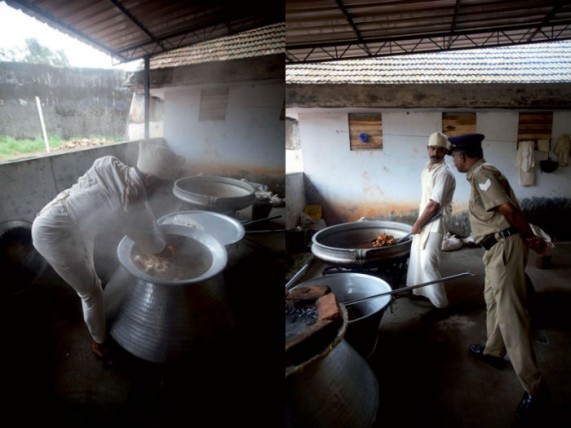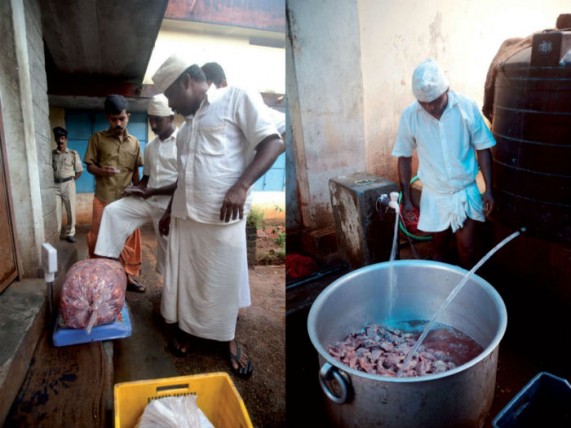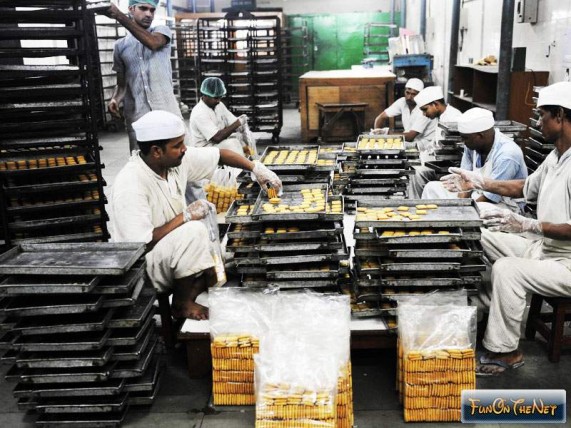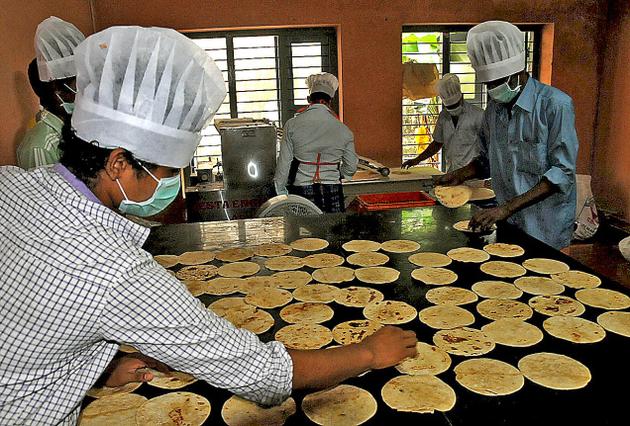This is how Freedom Food made by prisoners in Kerala is giving a new meaning to their life
As if to atone for their past sins, prisoners languishing in Kerala jails make delicious dishes and assorted articles of common use for the public at affordable rates.
The jail-made dishes already have a ready market in Kerala. The three-fold umbrellas made by inmates of Poojappura Central Jail too have become an instant hit. Now, a new brand of cost-effective readymade shirts, sewn exclusively by prisoners, will hit the Kerala market under the brand name ‘samraksha’ during Onam festival season. It is planned to be priced at Rs260 each. Around 20 inmates of Poojappura Central Prison in Thiruvananthapuram are being given training in shirt-making and the raw material for it is provided by the weaving unit of the prison.


The jail authorities are planning to diversify into other products like cakes, ‘pappad’, footwear etc and sell these items to the common man at lower prices.
The jail administration in Kerala hit upon the idea of making food in jails for the general public when there was concern over escalating prices of food items in hotels. The production of chapatis was started on an experimental basis in 2011 in Viyyur Central Prison. It was a grand success with 35,000 chapatis a day being sold there.
Despite the success of other items, the jail authorities were reluctant to add chicken biryani to the menu as it required 35 odd ingredients. But Viyyur Jail again took the plunge and about 500 packets of biryani are being sold at its sales counter every day. The menu was since enlarged to include idli with sambar and chutney, chicken curry, egg curry and vegetable curry.

There is a long queue of people before jails to buy prison food sold under the brand name `Freedom’. Affordable price and home-made taste are the major attractions of the dishes. For instance, a `Freedom chappati’, costs just Rs 3 a piece and `Freedom chicken biryani’ is priced at Rs60.
In view of the rising demand for prison food, the authorities have extended the scheme to most jails in Kerala, including Thiruvananthapuram, Kannur and Viyyur Central Jails. Jail authorites also arrange delivery at homes, offices and Government hospitals. Mobile outlets cater to the needs of low-income housing settlements, old-age homes and orphanages.
As jail food is targeted at the common man who can’t afford high hotel rates, prisons don’t take bulk orders for marriages, big parties etc. The prisons have made it a norm that more than 50 packets of food would not be sold to a single individual at a time. It’s not a bad deal for prisoners either as they are paid up to Rs120 per day, which enable them to send home about Rs3500 a month.
According to a rough estimate, an average of 1.12 lakh chapatis and thousands of packets of vegetable curry and chicken, prepared by prisoners, are sold out daily in Kerala.

`Freedom Food’ was much in demand during last Sabarimala season when idli-sambar and chapathy-vegetable curry were sold through mobile units at locations close to the foothills. To cater to the demand from pilgrims, 70 prisoners, some of them sentenced to life, were moved to the Pathanamthitta jail along with the chapati and idli units.
The only cost is for buying a few chapati-making machines for the venture. Chicken is mainly sourced from the prison poultry farms while freshly plucked vegetables from the jail gardens are used for making vegetable curries. Hundreds of prisoners are working in shifts to meet the rising demand for prison-food.
On a rough estimate, the Prison Department of Kerala makes about Rs15 crore a year from selling food alone. “We envisage the scheme as a social service, rather than as a money-spinning business. Poor people who can’t afford huge price for food are our target customers and we want to provide them quality food at cheap rate. We only take 10 % profit from the consumers,” says a police officer.
Also read
9 Kerala dishes you must absolutely try before you die
Beef in short supply; Kerala menu whines!

OMG-inducing, share-compelling, like-attracting, clutter-breaking, thought-provoking, myth-busting content from the country’s leading content curators. read on...
